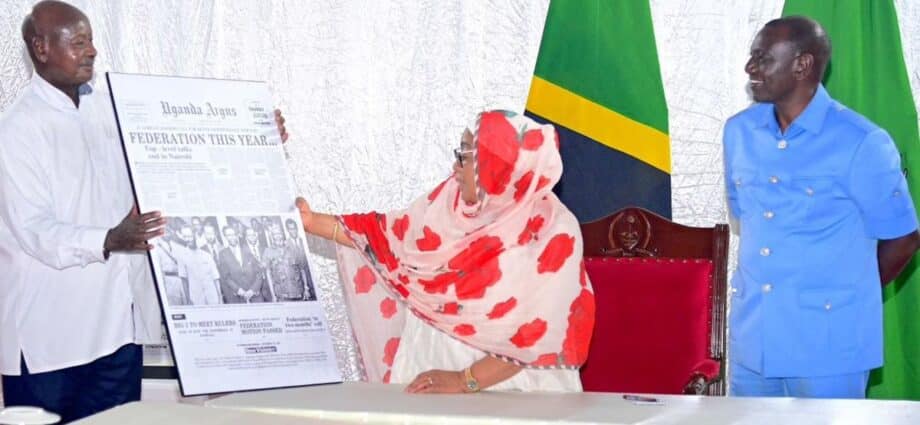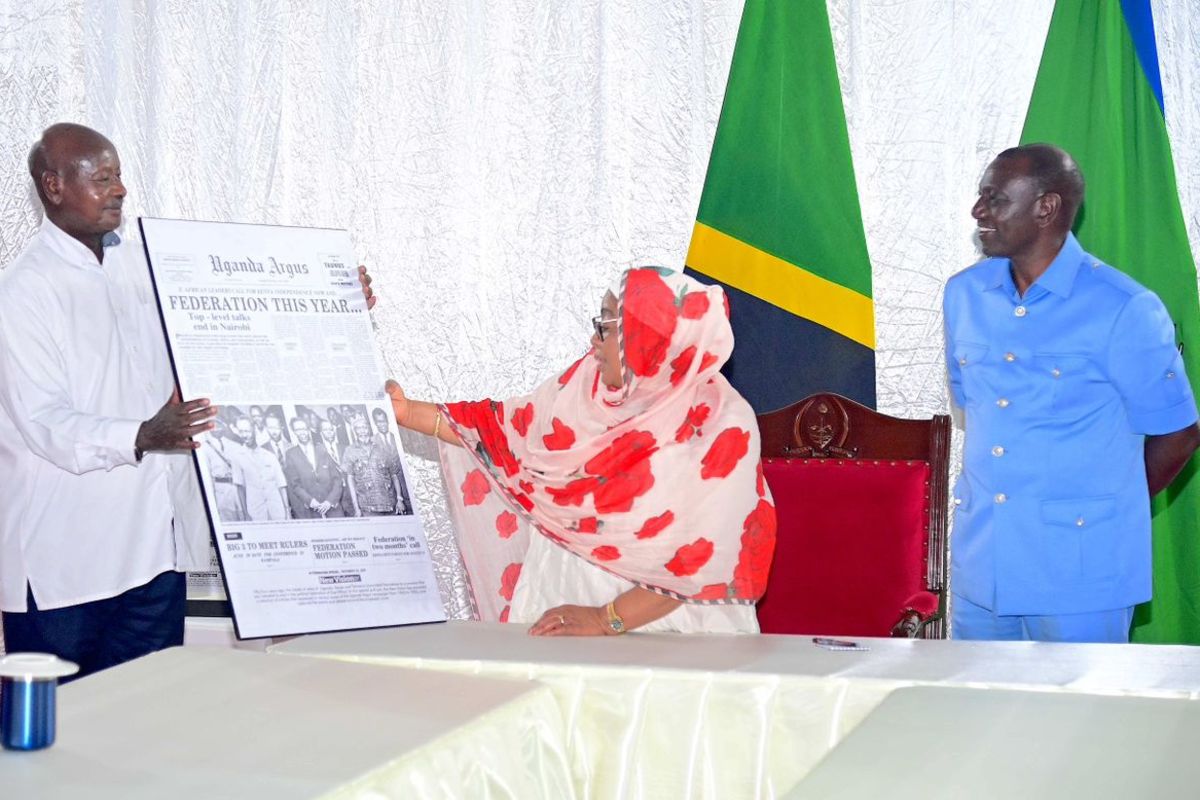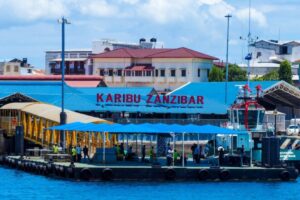Kenya, Uganda and Tanzania after independence founded the East African Community, killed it, and then revived it. Since the return of the EAC, there have been many ups and downs even as the bloc expanded to its membership current eight.
In the past year, Kenyan President William Ruto has seemed to be a part of those ups and downs in the bloc, or their direct cause, which is why his Thursday trip to Zanzibar, where he met with the host Samia Suluhu Hassan and Uganda’s Yoweri Museveni, was significant.
The three leaders met in an unannounced meeting and the agenda largely vague.
Tanzania’s State House said the trio’s talks touched on issues to do with East African integration, especially around the need to fast-track public participation on the model of EAC Political Confederation, the fourth pillar of integration.
This was President Ruto’s second time this year meeting with Uganda’s Museveni, with whom he had appeared to have fallen out over oil importation and other trade matters.
The disputes between Kenya and Uganda roped in Tanzania, which is often Uganda’s plan B when things don’t work with Nairobi.
Thursday was important because it signalled President Ruto’s desire for rapprochement, a government official told The EastAfrican.
“The President has not wavered on regional integration. I think it is a misinterpretation,” the official said on Friday, discussing President Ruto’s vision for the region in general.
“The President has been firm that we need to get closer to one another and expand our markets. There is always something for everyone. So, we will share our markets, our products and work on enhancing stability. It is his guiding principle.”
Three things have driven President Ruto’s back-into-the-fold moves, the official added: Raila Odinga’s candidature for the African Union Chairperson, which needs a unified regional support, the fact that the economies rely more on one another and the conflict in eastern Democratic Republic of Congo, which may hurt all countries.
The Thursday meeting, sort of, re-enacted the March 1996 ceremony to re-establish the East African Community, which had collapsed in 1977. Then, Presidents Daniel Moi, Benjamin Mkapa and Yoweri Museveni met in Arusha and formed the bloc once again. Only President Museveni is still standing from that group, and he is still central to the trading disputes or pacts in the bloc.
“Today, as leaders among the eight EAC partner states, we reaffirm our unwavering support for further regional integration and prosperity, focusing on fast-tracking the federation.
This vision is informed by the unity of our diverse communities, the economic benefits of creating a larger market, and the imperative of security for stability within our expanded Community,” Dr Ruto said on Thursday.
The official statement from Zanzibar did not indicate any deals. But these three countries have been at the centre of oil importation dispute that first begun when Uganda sued Kenya at the East African Court of Justice. Last month, a Ruto-Museveni-Odinga meeting at President Museveni’s Kisozi farm agreed to talk the matter out.
There have been indications that Uganda may withdraw the case it filed against Kenya for denying it the use of its port and oil transportation infrastructure in contravention of the provisions of the EAC Treaty.
But President Museveni would have to be assured of the implementation of his proposal to have his state oil marketing company registered in Kenya to ease importation and transmission of the commodity to Kampala.
One proposal available to Uganda is that Kenya and Tanzania will continue to provide it with importation routes for now, while Kenya and Tanzania will open its markets for Ugandan produce.
President Museveni was successfully lobbied to support Mr Odinga for the AUC job and offered to help. It is understood the Tanzanian leader has also agreed to back the former prime minister in his quest for the continental job.
The optics of the meeting give confidence to the region at a time that the integration agenda is in jeopardy largely because of increasing trade spats and bad blood among the states in the Great Lakes region.
That Kenya has recalled EAC Secretary-General Peter Mathuki and reassigned him to a diplomatic post adds to the unease, with uncertainty on the way forward, amid worries that such unprecedented action signals deep problems at the secretariat.
Samia’s Ikulu said the three leaders agreed on fast-tracking the political confederation policy review to ensure the Common Market benefits ordinary peoples of East Africa as well as “the importance of peace and security as one of the pillars for the success of our aspirations.”















